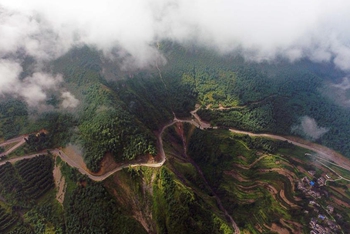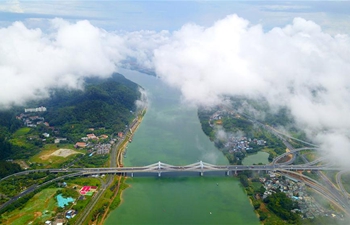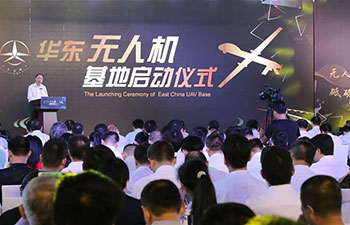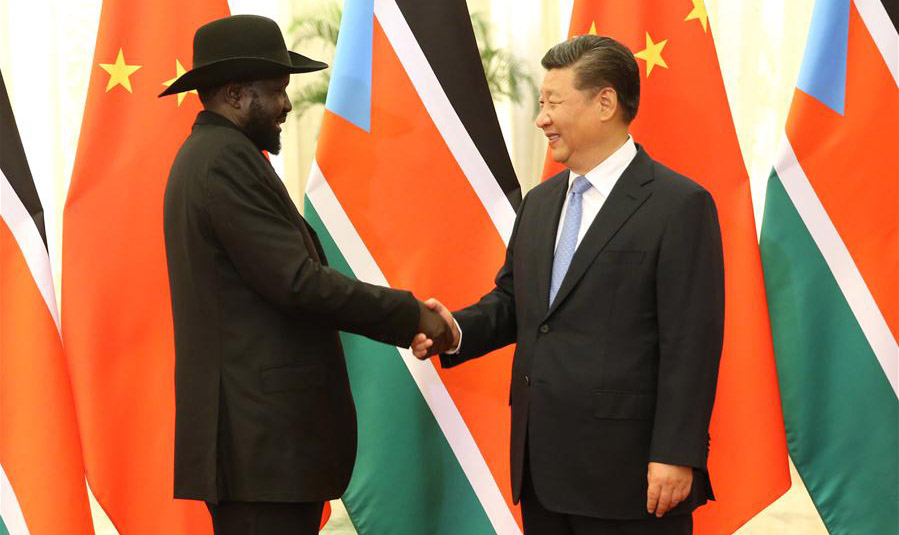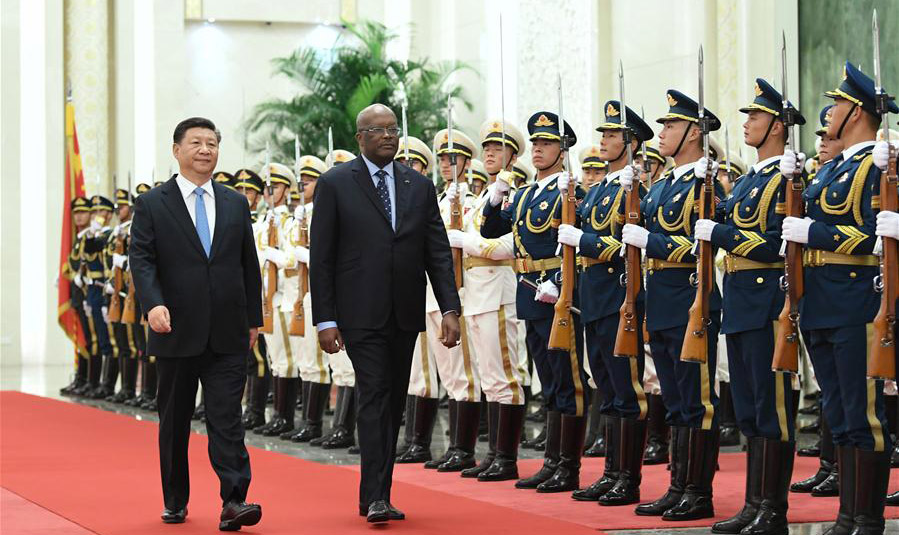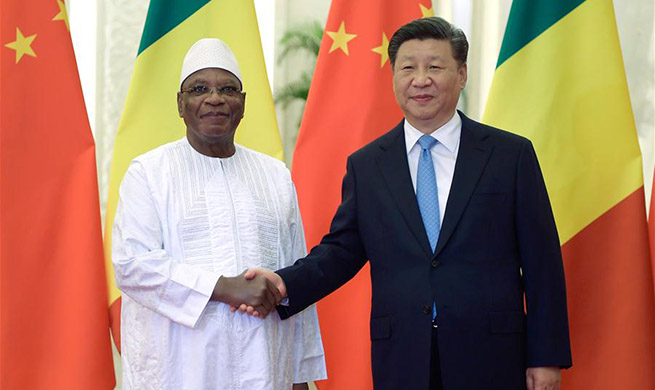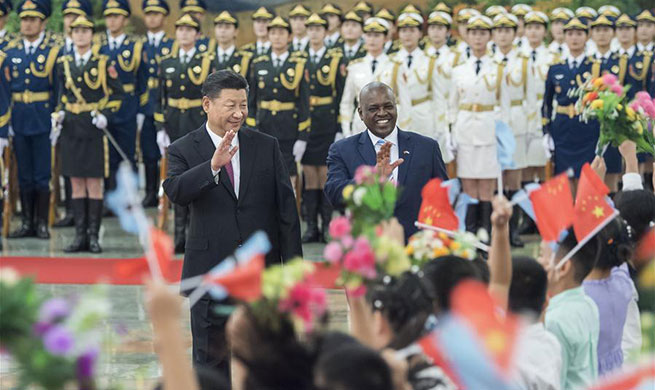BERLIN, Aug. 31 (Xinhua) -- Volkswagen will expand build new productive infrastructure in Ghana and Nigeria, the German carmaker announced on Friday.
A spokesperson for Volkswagen told press that the Wolfsburg-based company would sign a corresponding agreement with the government of Nigeria in the course of the day after having sealed a similar deal with Ghanaian representatives on Thursday. The announcement was made during an ongoing multi-day diplomatic visit of German Chancellor Angela Merkel (CDU) to West Africa.
Volkswagen explained that the objective of the agreements with both countries was to establish local assembly plants to meet local and regional demand from customers. Additionally, the carmaker is exploring offering other mobility services, such as car-sharing, in Ghana.
According to plans revealed on Friday, Nigeria, a country with a large and still rapidly growing population of nearly 200 million, could become a hub to assemble pre-manufactured vehicles for the entirety of West Africa. Volkswagen will join forces with the German government to build a local training academy towards this end. In turn, Nigeria has similarly offered to accelerate the pace of industry reforms to transform the country from being predominantly an importer of used vehicles to a manufacturer of and distribution partner for brand-new cars.
The news follows close on the heels of a pledge by Berlin to reduce obstacles to German-African trade which underscored the growing importance which the federal government attaches to the continent in its foreign economic policy. "The economic perspective is so important for most countries in Africa because there are many young people in need of training and jobs", Merkel explained during her latest weekly podcast.
West African leaders have previously expressed a desire to increase their volume of trade with Germany and reduce a current imbalance between high levels of imports from, and relatively small amounts of exports to, the eurozone's largest economy.
The German-African Business Association recently estimated that German firms will ramp up their investments on the African continent by more than 10 percent to a total of more than one billion euros and that the volume of government export guarantees has already more than doubled during the first half of 2018.
Back in June, the federal government eased the conditions which must be met for domestic small- and mid-sized enterprises (SMEs) to access export guarantees in trade with certain African countries. The regulatory changes apply to countries which have joined the G20 "Compact with Africa" initiative launched by Berlin.
German business representatives, who are accompanying Merkel during her West African trip, have praised the chancellor's latest efforts to promote closer economic ties with sub-Saharan countries. At present, only around 800 of 3.5 million companies registered in Germany have commercial activities in Africa.
